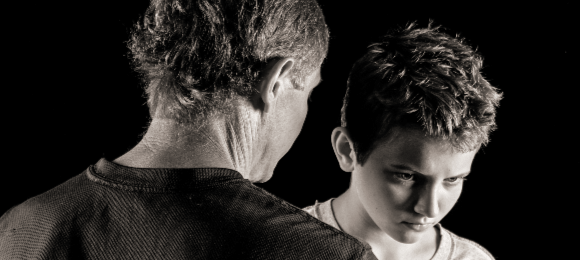
Question: Our fifteen-year-old son literally seethes with hostility at home—at his mother and me, at his sisters, at the world. Believe me, we have done nothing to provoke this anger, and I don't understand what has caused it. But other parents of teens report the same problem. Why are so many adolescents angry at their parents and family? Sometimes they seem to hate the people who love them the most!
Answer: At least part of the answer to that question can be explained by the "in-between" status of teenagers. They live in an era when they enjoy neither the privileges of adulthood nor the advantages of childhood. Consider the plight of the average fifteen-year-old. All of the highly advertised adult privileges and vices are forbidden to him because he is "too young." He can't drive or marry or enlist or drink or smoke or work or leave home. And his sexual desires are denied gratification at a time when they scream for release. The only thing he is permitted to do, it seems, is stay in school and read his dreary textbooks. This is an overstatement, of course, but it is expressed from the viewpoint of the young man or woman who feels dis-enfranchised and insulted by society. Much of the anger of today's youth is generated by their perception of this injustice.
There is another side to this issue of adolescent volatility. I'm now convinced that the hormonal changes occurring in a developing body may be more important to feelings than we thought earlier. Just as emotions are set on edge by premenstrual tension, menopause, and extreme fatigue, it is entirely possible that the adolescent experience is largely hormonal as well. How else can we explain the universality of emotional instability during these years? Having watched thousands of children sail from childhood to early adolescence, it still amazes me to witness textbook characteristics suddenly appearing on schedule as though responding to a preprogrammed computer. In fact, they probably are. I can't prove this hypothesis to be valid, but it is making more sense to me year by year.
Question: All right, so my kid feels disrespected and hostile. I still have to impose some limits and discipline on him, don't I?
Answer: Yes, but it is possible to lead teenagers without insulting and antagonizing them unnecessarily. I learned this lesson when I was a junior high school teacher. It became clear to me very early that I could impose all manner of discipline and strict behavioral requirements on my students, provided I treated each young person with genuine dignity and respect. I earned their friendship before and after school, during lunch, and through classroom encounters. I was tough, especially when challenged, but never discourteous, mean, or insulting. I defended the underdog and tenaciously tried to build each child's confidence and self-respect. However, I never compromised my standards of deportment. Students entered my classroom without talking each day. They did not chew gum, behave disrespectfully, curse, or stab one another with ball point pens. I was clearly the captain of the ship, and I directed it with military zeal.
The result of this combination of kindness and firm discipline stands as one of the most pleasant memories of my professional life. I loved my students and had every reason to believe that I was loved in return. I actually missed them on weekends (a fact my wife never quite understood). At the end of the final year when I was packing my books and saying good-bye, there were twenty-five or thirty teary-eyed kids who hung around my gloomy room for several hours and finally stood sobbing in the parking lot as I drove away. And yes, I shed a few tears of my own that day. (Please forgive this self-congratulatory paragraph. I haven't bothered to tell you about my failures, which are far less interesting.)
From Dr. Dobson’s book Raising Teenagers Right.












